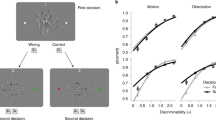Abstract
Two hypotheses were put forth with respect to the relationship of value to statements of expectancy. First, given a specific sequence and relative frequency of a set of outcomes, the perception that the outcomes are skill-influenced will result in expectancy statements biased in direct relationship to the values of the outcomes. Secondly, forcing a distinction in expectations regarding events which are equally likely introduces a bias directly related to the values of the outcomes. Four groups of 10 subjects each were run under four experimental conditions. These were, Skill-Forced rank-order; Skill-Equal rank option; Chance-Forced rank-order; and Chance-Equal rank option. Both major hypotheses were supported by the data. In the discussion it was emphasized that the Skill-Chance dimension must be taken into serious consideration in research on expectancies (subjective probabilities) and that it is advisable to liberalize the judgment categories provided for expectancies in order to minimize the danger of artifactual bias.
Similar content being viewed by others
References
ATKINSON, J. W. Motivational determinants of risk-taking behavior. Psychol. Rev., 1957, 64, 359–370.
CRANDALL, V. J., SOLOMON, D., & KELLAWAY, R. Expectancy statements and decision time as functions of objective probabilities and reinforcement values. J. Pers., 1953, 24, 192–203.
EDWARDS, W. Prediction of decisions among bets. J. exp. Psychol., 1955, 50, 201–214.
EDWARDS, W. Behavioral decision theory. In Annual Review of Psychology, 12, 1961.
FEATHER, N. T. Subjective probability and decision under uncertainty. Psychol. Rev., 1959, 66, 150–164.
IRWIN, F. W. Stated expectations as functions of probability and desirability of outcome. J. Pers., 1953, 21, 329–335.
JESSOR, R., & READIO, J. The influence of the value of an event upon the expectancy of its occurrence. J. gen. Psychol., 1957, 56, 219–228.
LEWIN, K., DEMBO, TAMARA, FESTINGER, L. & SEARS, PAULINE. Level of aspiration. In J. McV. Hunt (Ed.), Personality and the behavior disorders. New York: Ronald, 1944.
MARKS, R. W. The effect of probability, desirability, and ‘privilege’ on the stated expectations of children. J. Pers., 1951, 19, 332–351.
ROTTER, J. B. Social learning and clinical psychology. New York: Prentice-Hall, 1954.
WORELL, J. The effect of goal value upon expectancy. J. abnorm. soc. Psychol., 1955, 50, 201–214.
Author information
Authors and Affiliations
Additional information
The author gratefully acknowledges the advice and help of Professor T. R. Sarbin in the execution of this experiment.
Data were gathered at the University of California, Berkeley.
Rights and permissions
About this article
Cite this article
Scheibe, K.E. The effect of value on statements of expectancy under four experimental conditions. Psychol Rec 14, 137–144 (1964). https://doi.org/10.1007/BF03393570
Published:
Issue Date:
DOI: https://doi.org/10.1007/BF03393570




